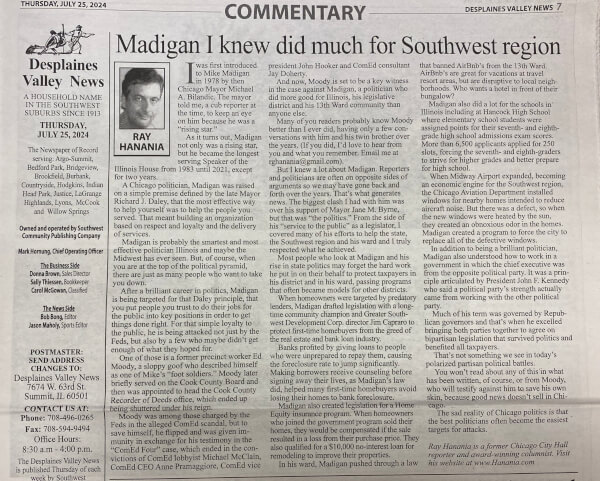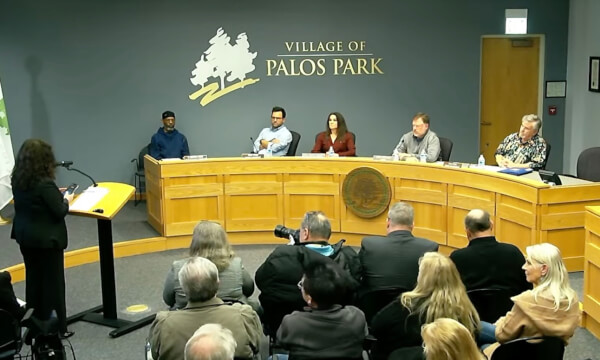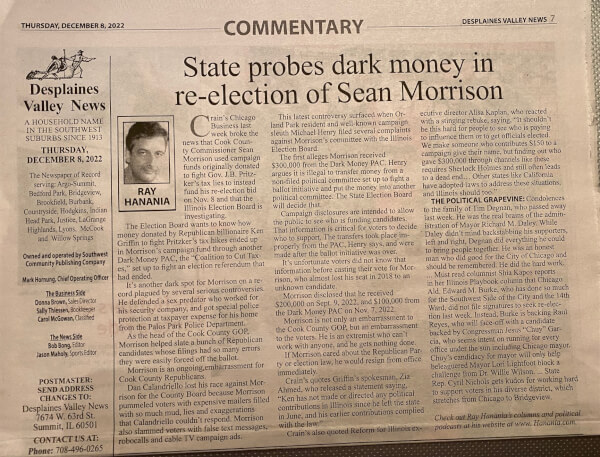Proposed bipartisan Senate bill to keep kids under 13 off social media should be passed
By Jeffery M. Leving

Recently there have been a few lawsuits filed by some states against social media companies in order to protect the mental health of youths.
There have also been calls for government regulation, movement from the social media companies to address concerns about children using their platforms, and the growing use of third-party apps that help parents regulate their children’s online activity.
While all these efforts are good and may protect children, a new bipartisan proposal may take away the need for everything I noted above and help keep children safe at the same time.
What I’m referring to is a new piece of legislation called the The Protecting Kids on Social Media Act that aims to protect children from aspects of social media that experts say are contributing to the mental health crisis impacting America’s youth.
If passed, the legislation would set the minimum age of social media users to 13. For teens between the ages of 13 and 18, parental consent would be required, and platforms would be banned from using algorithms to recommend content to those young users.
Adults would have to create an account for their teens, providing a valid form of ID to become users on a platform, according to the bill.
Two Republicans, Sen. Tom Cotton of Arkansas and Katie Britt of Alabama, along with two Democrats, Brian Schatz of Hawaii and Chris Murphy of Connecticut have sponsored the bill and believe the mental health crisis weighs most heavily on kids, especially girls. We know that social media can bring us closer together and help us communicate and learn about what’s going on in the lives of people we care about. But for kids, unchecked usage can have a negative impact.
I fear children are suffering more and more from eating disorders, depression and bullying as a result of too much time spent online. Additionally, some kids have gone to social media to find drugs or gotten bamboozled into sexual relationships with adults or discussed disturbing plans to shoot up a school.
The alarm has been going off for some time and lawmakers are starting to notice. Even the U.S. Surgeon General Vivek Murthy weighed in, saying in a CNN interview in January that he believes 13-year-olds are too young to join social media and being on those platforms does a “disservice” to children. Murthy did not choose age 13 randomly.
Instagram, Snapchat and Twitter all allow users ages 13 or older on their platforms. TikTok users who are younger than 13 can use that platform, albeit with a safety setting for children that limits the information collected from them, as well as preventing them from messaging users or allowing others to see their user profile.
This type of action from TikTok has been copied by other social media companies who may fear stricter regulation or lawsuits. However, many social media companies claim to not allow kids under 13 on their platforms, and instead rely on self-reporting methods, which can be easily bypassed by children. To combat that, third-party apps have emerged that help parents regulate their children’s online activity.
Titania Jordan, an executive with Bark, one of the third-party apps, makes a valid point about the efforts of social media companies to regulate child usage.
“You want to believe that the people in charge of trust and safety are completely unbiased, and I know a lot of them have really good intentions, but the reality is these are for-profit companies, and they have a vested interest in keeping you inside of their app for as long as possible and getting as much data from you as possible to sell ads,” Jordan said.
A majority of teens say they use social media platforms like TikTok and YouTube at least once a day, and others admit to using the sites almost “constantly,” according to a recent Pew Research study. Over half of the teens polled said it would be hard for them to stop using social media.
The new legislation will put parents back in control of what their kids experience online.
Additionally, it will eliminate the need to hope that the social media companies will do the right thing and ensure the internet is a safe space for kids; reduce the need for lawsuits; and reduce reliance on third-party apps.
The bottom line is that no child under 13 should be on social media and thus, the The Protecting Kids on Social Media Act should be passed. It may be the only way to save many of our children.
Jeffery M. Leving is founder and president of the Law Offices of Jeffery M. Leving Ltd., and is an advocate for the rights of fathers. He is the author of “Fathers!”Rights,” “Divorce Wars” and #How to be a Good Divorced Dad.” Leving can be found on Twitter and Instagram @Dadsrights


























